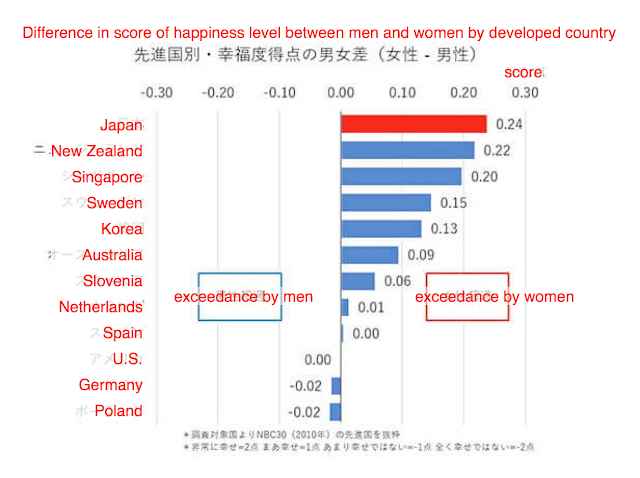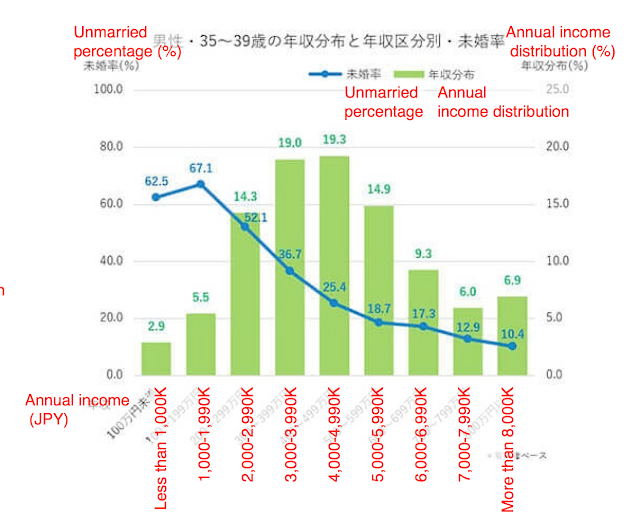image: pixabay
“Young women” and “full-time housewives” in Japan have a high level of happiness – To lead a marital life which assures a higher level of happiness, women have to choose well-matched partner by sniffing at each other’s underwear worn for several days!
According to the quite interesting article below, Japan is a country where women have a high level of happiness, and especially “young women” and “full-time housewives” have a higher level of happiness. It seems that women in Japan have a higher level of happiness than those in any other country because unlike other developed countries, Japan tends to accept full-time housewives. The article says that “to become full-time housewives helps women have a higher level of happiness.”
I watched a program on TV and if I remember correctly, full-time housewives were created as a special position of women in the Meiji era, though women had to work in the same way as men before the Meiji era. Women who married men with strong economic strength were given special treatment and they specialized in keeping house and taking care of children. I remember that “okusama” was the title given to such full-time housewives.
If the data and statement in the article is correct, it turns out that an increase in the number of full-time housewives raises the level of happiness of women and such society is a society where people can make a living with men’s salaries. It was true in the Showa era. I think that old men of the Japan Conference may prefer to this kind of society.
The article calls on women “not to choose men based on economic strength” to share happiness with men. However, if the result is that women can’t give birth to children in dual-income household, it is likely that women will be forced to accept “one-sided sacrifice,” which is far from “sharing happiness” with men.
I think that it is an important viewpoint “not to choose men based on economic strength” but we can say that a society in which a couple has difficulty in making a living after marriage has a structural problem. In this sense, I think that basic income system has to be taken into consideration.
The article itself has some questionable points. I feel that the article postulates that marriage is equal to a high level of happiness. However, in reality, I think that there are many “couples who regret marriage.”
I feel that women can lead a marital life which assures a higher level of happiness not by choosing men based on annual income but rather by choosing well-matched partner by sniffing at each other’s underwear worn for several days.*
Masatoshi Takeshita
August 13, 2019
*Editor’s Note: The original link that Mr.Takeshita provided has been swapped because MT of the post is not available.
Note:
Shanti-phula has indicated some parts of the following black bold-faced type or in red letters.
English translation of an excerpt from a Japanese article: Aletta– August 5, 2019 –
All ladies, would you please share happiness with men?
<snip>
First of all, please see this data.
Difference in score of happiness level between men and women by developed country
Source: “World Values Survey” HP, “World Values Survey/Sixth Survey” (2010-2014)
Prepared by blog creator
We can read from this graph that the subtractive difference between female happiness level and male happiness level(exceedance by women) is the biggest in Japan among 12 developed countries. <snip> Especially“young women” and “full-time housewives” among women have a higher level of happiness.
<snip>
On the contrary, why do men feel a low level of happiness?
Among men, especially “unmarried men” have a low level of happiness. “Unmarried men” amount to 30 percent of all adult men and they are not special people.
<snip>
Please see this graph.
Annual income distribution and unmarried percentage of men aged between 35 and 39
“2017 Structure of Employment Basic Survey” HP
Prepared by blog creator
www.stat.go.jp/data/shugyou/2017/index.html
www.stat.go.jp/data/shugyou/2017/index.html
We can read the correlation between annual income of men and percentage of unmarried men: “The lower annual income of men, the higher percentage of unmarried rate.”
<snip>
Japan tends to accept full-time housewives and “to become full-time housewives helps women have a higher level of happiness. On the other hand, the reality is that men who cannot make money remain unmarried and have an extremely low level of happiness.
In Japan, we have supposedly opposed to the conception of division of roles between men and women: “men should work outside and women should protect homes” but Japan is the country which has still a strong stereotyped conception for the division of roles in the actual scene of selecting the opposite sex.
<The rest is omitted>



Leave a Reply